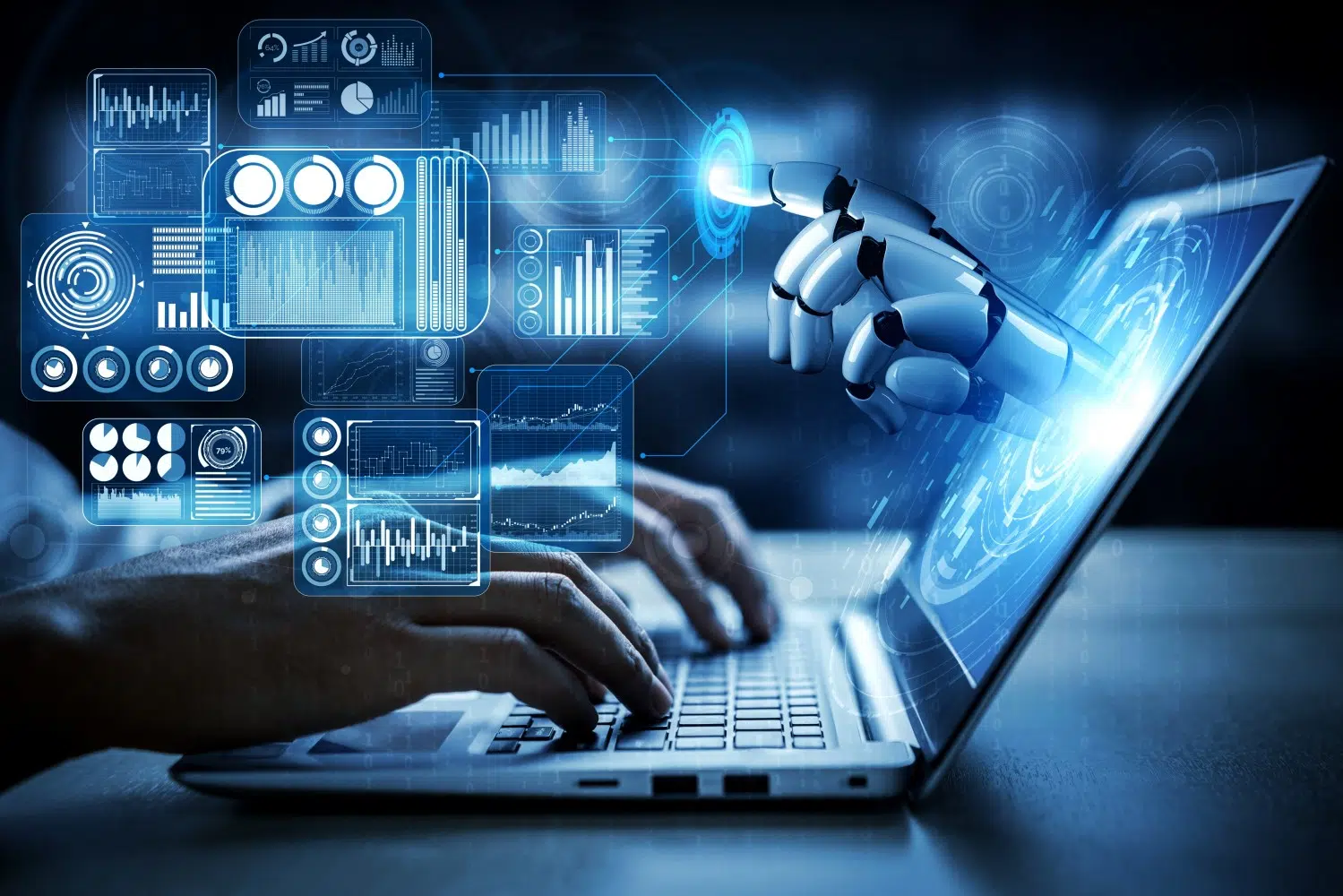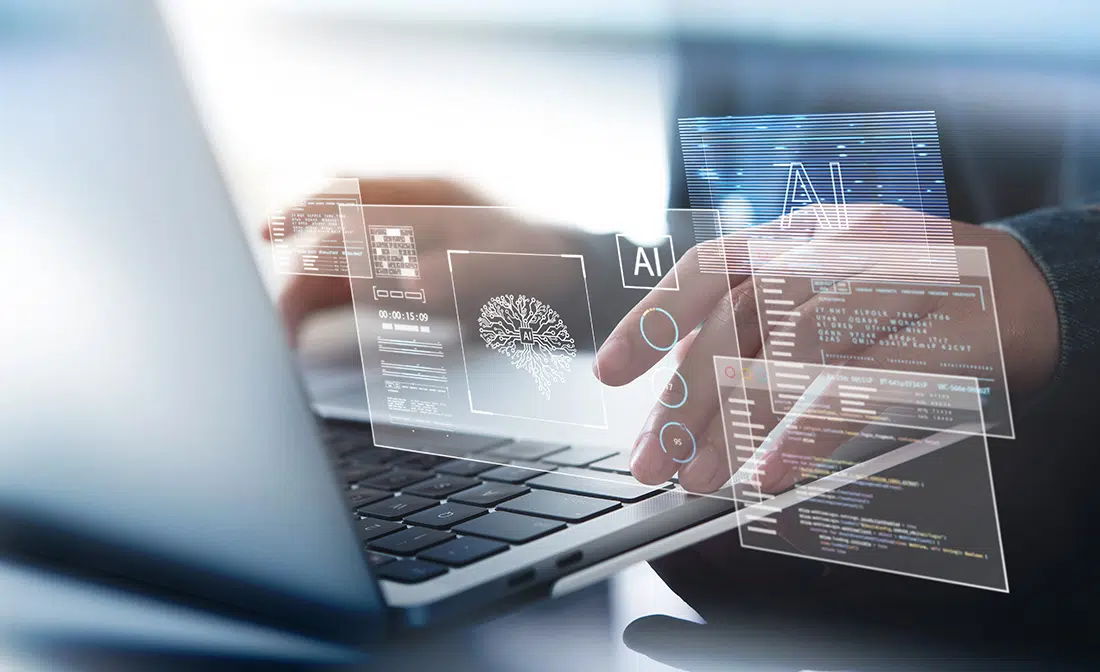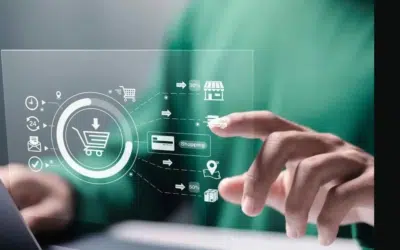AI in ERP Security: Why It Matters Now
In today’s digital-first enterprise landscape, AI in ERP security is emerging as a critical differentiator. As organisations modernise their core enterprise systems, the convergence of intelligent automation, cloud migration, and cybersecurity risk has created a complex equation of talent and technology. Backed by internal systems, business-process workflows, and strategic transformation programmes, modern ERP environments are no longer passive tools. They are dynamic platforms that drive business resilience, agility, and insight.
When leaders focus on an ERP talent strategy that understands AI-enabled ERP workflows, they build systems that are not only efficient but also secure by design. From hiring for ERP security roles to overcoming ERP AI integration challenges, this shift is reshaping how companies approach enterprise systems.

The Changing Architecture of ERP: From ERP Backbone to AI-Driven Engine
Enterprise-resource-planning systems have long been the backbone of enterprise operations. Today, they are evolving into intelligent environments where process automation, advanced analytics and business-wide visibility converge. This transition illustrates several vital trends:
The migration from legacy on-premises systems to cloud platforms has accelerated. Modern cloud-ERP environments offer greater scalability and agility. According to research, AI-infused cloud ERP solutions are streamlining operations, improving decision-making, and enhancing security.
In this context, AI integration supports AI-enabled ERP workflows that span finance, supply chain, HR, and operations—making business processes more responsive and data-driven.
Implied Impact on Talent Strategy
As systems evolve, organisations must rethink their ERP talent strategy. The shift to AI and cloud places new demands on hiring for ERP security roles, on professionals who can manage AI-driven systems and on teams that can anticipate evolving cyber risk in this new architecture.
Strengthening ERP Cybersecurity Through Intelligent Systems
Securing modern ERP environments requires a holistic approach. With the integration of AI into enterprise-systems, new attack surfaces appear. At the same time, AI offers advanced capability to monitor, detect and respond to threats.
What AI Can Offer for ERP Cybersecurity
AI-driven solutions enhance ERP security by:
- Monitoring and identifying anomalies in system behaviour faster than manual methods
- Enabling predictive threat detection, especially when combined with large-scale data feeds
- Enforcing governance and compliance controls across cloud and hybrid ERP landscapes.
These capabilities directly impact how organisations think about ERP cybersecurity and the talent behind it.
To fully realise the benefits of AI in ERP security, companies must address the talent side. That means recruiting professionals with experience in cloud ERP modernisation, AI/ML risk modelling, and cyber-risk management. These roles are pivotal in bridging technology and business risk.
Challenges such as data readiness, integration complexity, and change management are central to successful deployments of AI-enabled ERP systems.
Building a Talent-Ready ERP Ecosystem
For enterprise leaders focused on transformation, building a secure, agile ERP foundation requires more than just technology. It requires people and processes aligned to purpose.
Assessing Skills and Readiness
Organizations should evaluate whether their current ERP leadership and teams are equipped for:
- Managing AI ERP transformation across modules and functions
- Aligning with ERP data readiness standards so that AI feeds reliable and ethical inputs
- Supporting cloud-ERP modernisations with embedded governance, compliance, and risk frameworks
Leaders who build this foundation can accelerate time to value and safeguard their systems through the transition.
Strategic Talent Acquisition & Partner-Led Hiring
When internal teams lack specific expertise, partnering with specialist hiring firms becomes critical. Recruiting for ERP roles—especially those combining AI, cloud migration and cybersecurity—is a niche effort. The right partner helps you identify talent who not only understand ERP systems but also bring strategic insight into transformation and risk.
Future Outlook: Why “AI in ERP Security” Will Define Competitive Advantage
Organizations that invest in AI in ERP security today are positioning themselves to lead tomorrow. As ERP systems become more connected, intelligent, and cloud-enabled, success will depend on how well people, data, and systems work together.
At TalentoHC powered by R2 Global, we see this convergence every day. The companies building a true competitive edge aren’t just deploying smarter technology—they’re aligning their ERP talent strategy with transformation goals. They’re hiring professionals who can connect innovation with governance, automation with security, and modernization with measurable business value.
By strengthening ERP cybersecurity, enabling cross-functional collaboration, and embedding AI-enabled ERP workflows, organizations turn transformation into resilience and growth.
The leaders who address the twin demands of talent and technology will be the ones delivering outcomes that go beyond systems performance—building secure, future-ready enterprises equipped for the next era of intelligent operations.
Ready to Strengthen Your ERP & EPM Function?
In partnership with R2 Global, TalentoHC connects organizations with ERP and EPM professionals who combine technical depth with strategic perspective. From Oracle and NetSuite to OneStream and Acumatica, our teams help companies modernize core systems, enhance governance, and scale securely in the cloud.
Talent with the skills to lead modernization and AI integration is in high demand—and moving quickly.
Planning ERP or EPM transformations in 2025? Start building now.
Turning AI in ERP Security Into Competitive Strength
FAQ
What is AI in ERP security?
AI in ERP security refers to the use of artificial intelligence to detect, prevent, and respond to threats within enterprise resource planning systems. By learning from user behavior and data patterns, AI-driven tools can identify anomalies faster and strengthen overall system protection
How does AI improve ERP cybersecurity?
AI enhances ERP cybersecurity by continuously monitoring transactions, flagging irregular activities, and automating response actions. This proactive approach reduces risk exposure across financial, operational, and compliance functions—especially in cloud ERP environments.
What are the main challenges of integrating AI into ERP systems?
Common ERP AI integration challenges include data readiness, legacy system compatibility, and skill shortages in both AI and ERP architecture. Building the right ERP talent strategy and ensuring secure data pipelines are essential for success.
Why is cloud ERP modernization important for enterprise security?
Cloud ERP modernization provides scalability and access to advanced security features such as encryption, continuous monitoring, and AI-enabled threat detection. When combined with an experienced ERP and cybersecurity team, it helps organizations future-proof their digital infrastructure.
What types of roles are in demand for ERP and EPM modernization?
Hiring for ERP security roles and transformation talent is accelerating. Organizations are seeking professionals skilled in AI-enabled ERP workflows, cloud integration, governance, and compliance—individuals who can bridge business objectives with secure, efficient technology operations.




